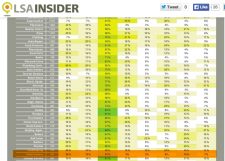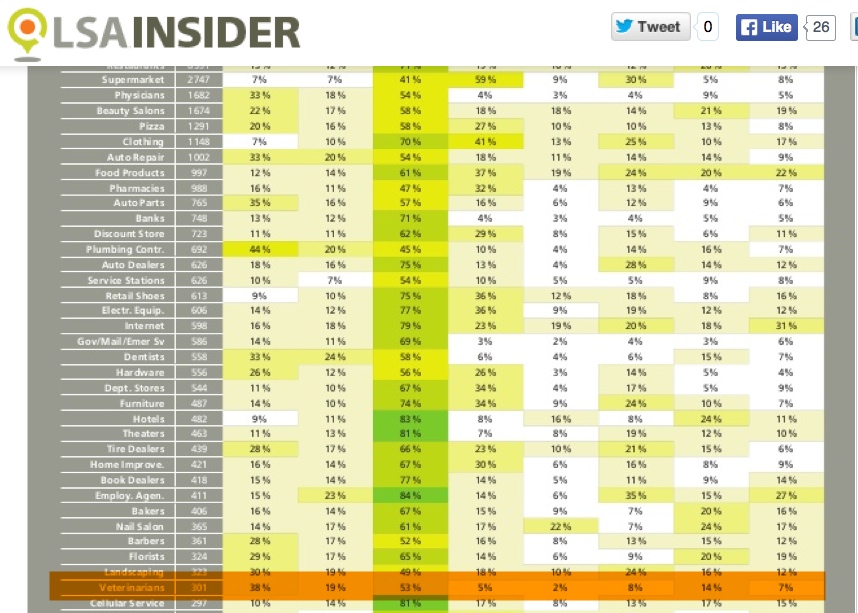
New Local Search Data for Veterinary Practice Websites
I came across an interesting local search infographic a short while ago with data that’s important if you’re in charge of marketing a local veterinary practice, and you’re competing against other local options.
You see, local search is a huge deal when it comes to attracting new business for your local veterinary practice. This LSA Insider (Local Search Association) infographic showed that “veterinarians” is among the top 142 categories consumers searched for in just one week. Veterinarians are listed as #35 on the list.
When you dig deeper, you’ll see the dominance of search engines as the tool consumers use for finding local veterinary practices, far above any other method. Here’s the breakdown:
- 53% of consumers used search engines (Google, Bing, Yahoo, etc.) to find local practices
- 14% of consumers used review sites/rating sites (Yelp, Google+, Angie’s List) to find local practices
- 8% of consumers used magazine or newspaper ads to find local practices
- 7% of consumers referred to social media sites to find local practices
- 7% used store coupons or daily deals to find local practices
Consider what his means when it comes to marketing your veterinary practice.
It’s perfectly fine to use social media and review sites to promote your local practice… but you can see that it pays to pay close attention to search engine traffic. Ask yourself, is your website — the hub of all your marketing and the top driver of search results — doing all it can to be an awesome, LOCAL website? Here’s a quick 5-point test to help you answer that question.
- My website is mobile-responsive, showing up correctly in smartphones
- My website includes content that’s LOCAL (for instance, it uses phrases such as “veterinary care in Dallas” or “Dallas animal hospital” (not just Pets First Animal Hospital, which could be anywhere)
- My website includes local SEO (search engine optimization) tags, such as Page Title tags, Meta Description and Alt. Image tags
- My website includes local photos of real people: the practice, my staff, and the local services we offer (no stock images allowed!) 🙂
- I have a blog post with LOCAL content (you’re not just writing tips to help with flea control; you’re writing tips to help with flea control in YOUR TOWN)
If you said no to any of these items, or you’re not sure, you’ll want to evaluate and possibly update your website so it’s truly ready for local search.
In my experience, after conducting hundreds of searches around the country, I can say that most veterinary practice websites do NOT pass this test! This means your local competition is probably not passing the test… so you can jump ahead of them with a great website that’s mobile-responsive and optimized with local content.
Contact us if you need help.
Until then,
Here’s to your veterinary website’s success!
Pam Foster
PetCopywriter.com

